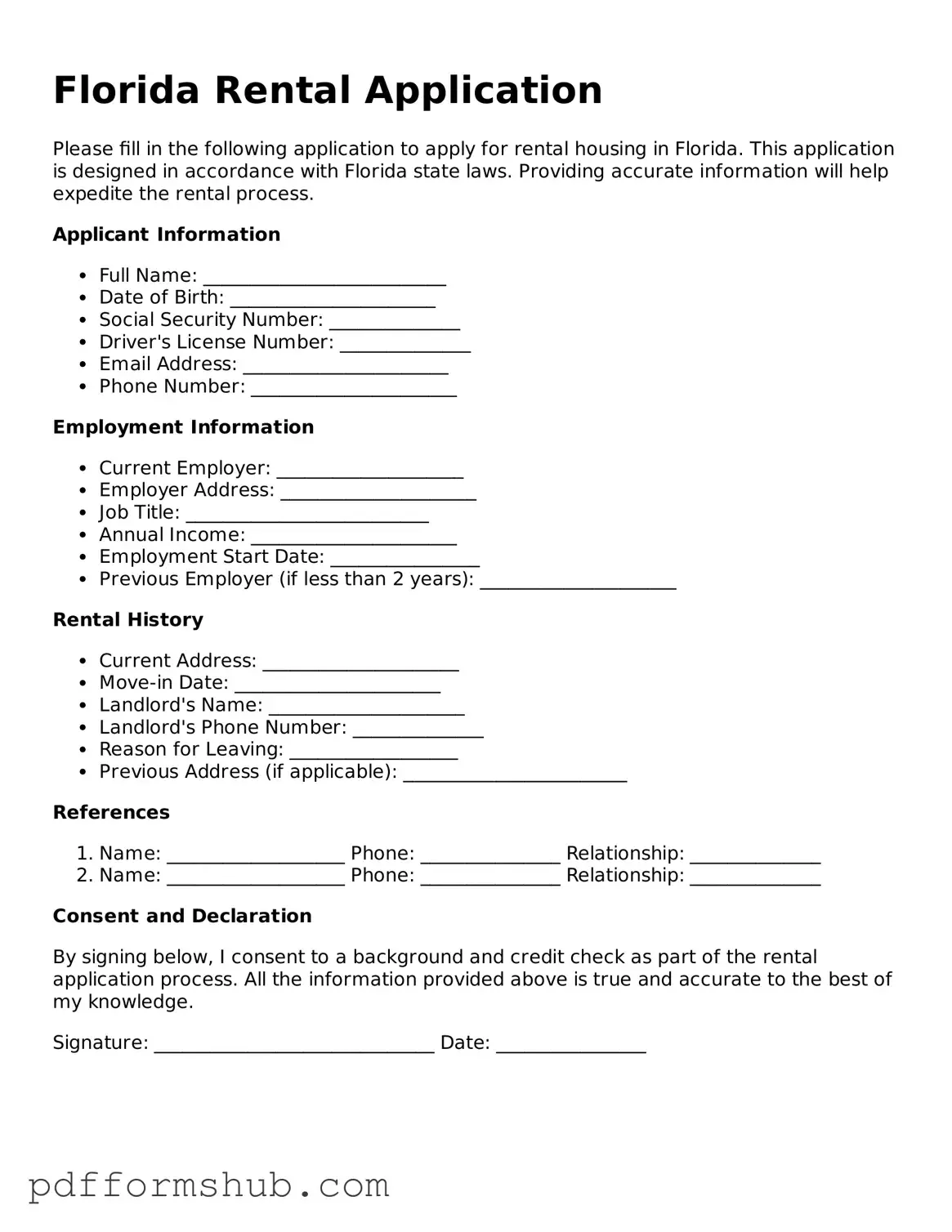Attorney-Verified Rental Application Form for Florida State
The Florida Rental Application form is a crucial document that potential tenants must complete when seeking to rent a property in the state. This form collects essential information about the applicant, including their financial history and rental background, to help landlords make informed decisions. If you're ready to take the next step in your rental journey, fill out the form by clicking the button below.
Customize Form

Attorney-Verified Rental Application Form for Florida State
Customize Form

Customize Form
or
Free PDF Form
Short deadline? Complete this form now
Complete Rental Application online without printing hassles.